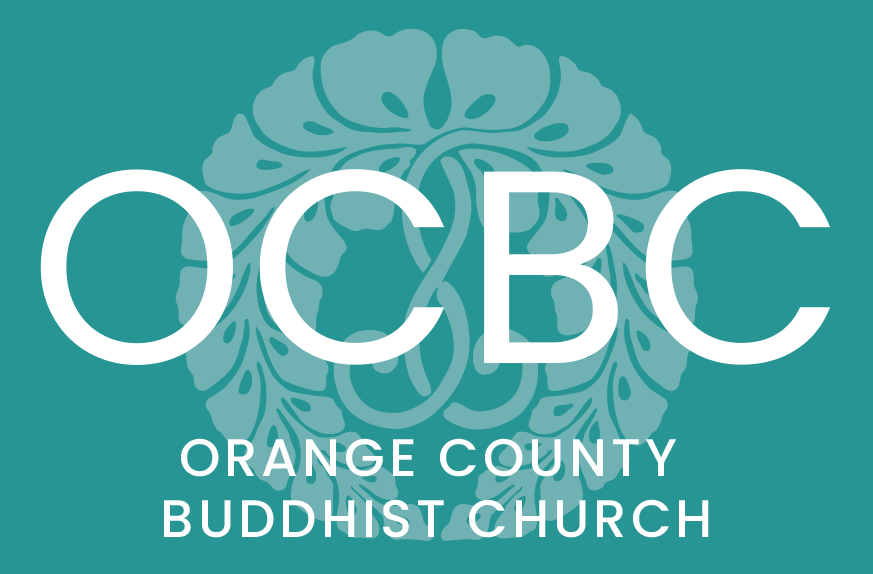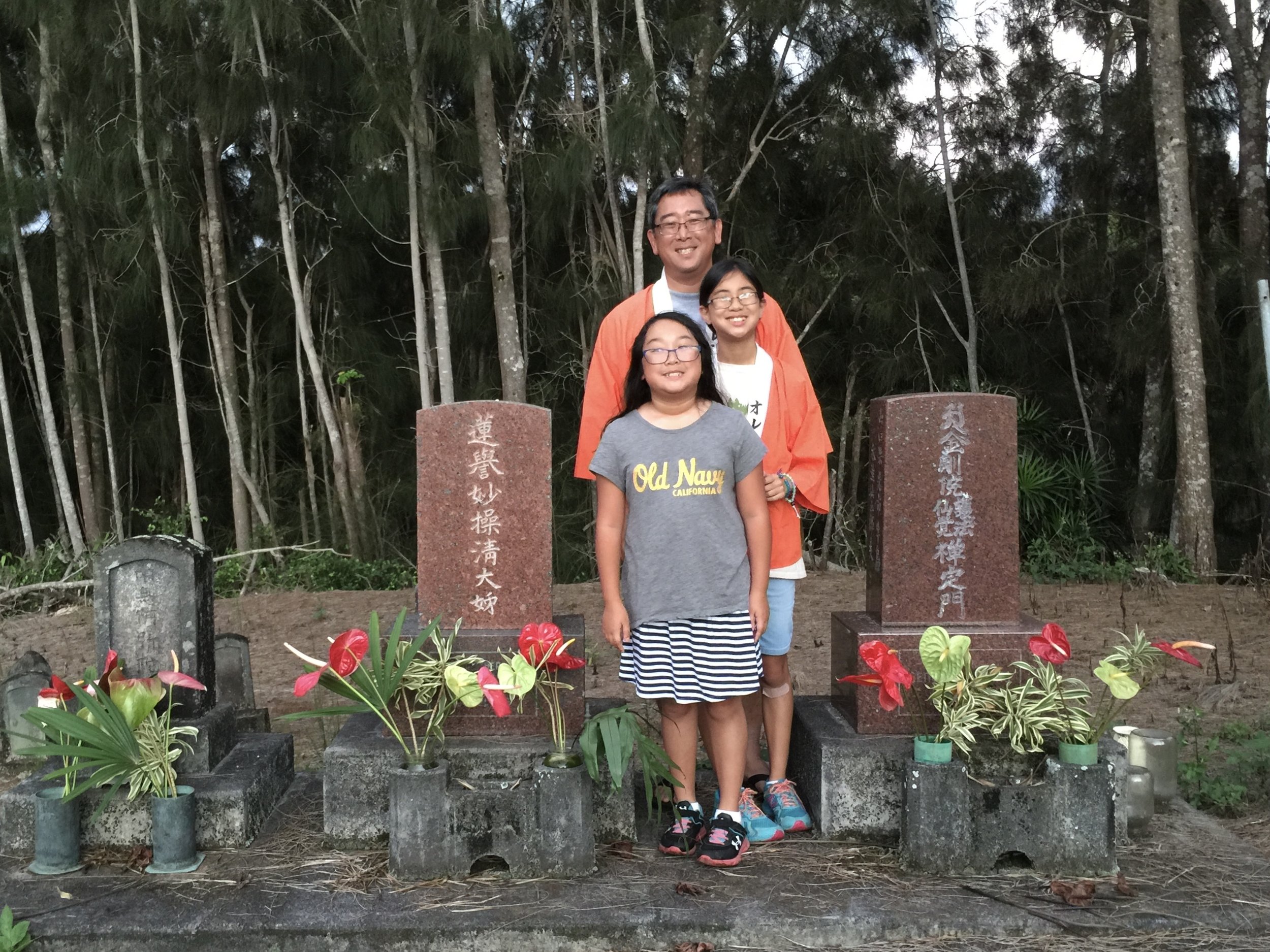Hakamairi with Aloha
Spotlight with Tilden Osako
“Hakamairi is an essential way to show respect and kansha (gratitude) for those who came before us. It reinforces the idea of okagesamade — I am who I am because of you.” — Tilden Osako
The graves of Tilden Osako’s great grandparents Sengorō and Natsu Ōsako at the Hāmākua Jōdo Mission cemetery in Pāʻauhau on The Big Island. This picture is of Tilden Osako and his children Natalie and Sydney in 2015.
Hakamairi is the Japanese term for paying respect at the graves of departed ancestors. The practice is certainly not unique to Japanese culture or Buddhism, but it is an important ritual for many in our Sangha.
My first memory of hakamairi dates back to my first trip to the Big Island of Hawaiʻi when I was about six years old. My father stopped at the Hāmākua Jōdo Mission Cemetery in the plantation village of Pāʻauhau to hakamairi at the graves of my issei great-grandparents, Sengorō and Natsu Ōsako. I never met my great-grandparents who died in 1925 and 1948, so this was also a way for my father to introduce me and my siblings to his grandparents. As an adult, relatives on my mother’s side of the family took me to the family plot in Fukuoka prefecture. I recall them telling me that these ancestors—none of whom I had known and some who died nearly 200 years ago—were so happy that I had come to visit.
From front to back, Tilden Osako, brother Philip, sister Lynn, and father Arthur (1975)
On the left, Tilden’s great grandfather Sengorō Ōsako (circa 1930). On the right, Natalie and Sydney (2009).
Of course, hakamairi is not only an introduction to long passed ancestors. I recall a Dharma message that Rev. Marvin Harada shared with my family at one of the early memorial services for my father. He explained that each memorial service gives us a chance to say goodbye again to our departed loved ones. For many, Hakamairi serves much the same purpose—it is a means to be close to those we knew in life and deeply miss.
Finally, hakamairi is an essential way to show respect and kansha (gratitude) for those who came before us. It reinforces the idea of okagesamade, “I am who I am because of you.” In 2009, I took my daughters to Pāʻauhau to introduce them to their great-great-grandparents. I explained to them that what we have is the result of sacrifices made by those who came before. Having been born and raised in Hawaiʻi, it occurred to me that hakaimairi is an act of aloha, the Hawaiian word for love, but also for hello and goodbye.
Namu Amida Butsu,
Tilden Osako



